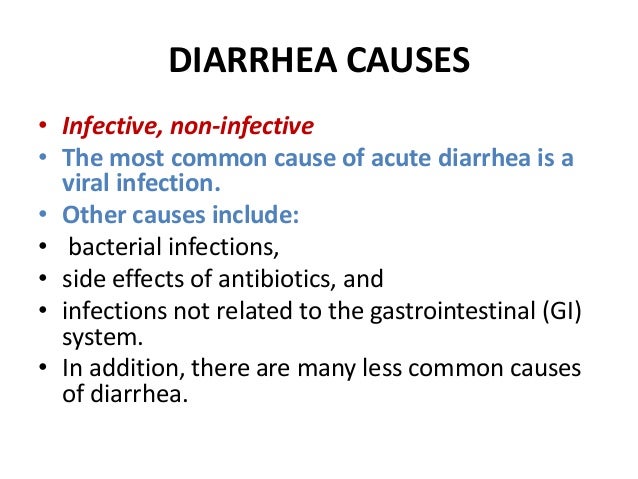There are several factors that contribute to toddlers diarrhea including. Virus such as Rotavirus.
 Baby Diarrhea Causes Treatments And When To Worry
Baby Diarrhea Causes Treatments And When To Worry
You can give a rotavirus vaccine to your little one to protect him or her from this virus.

Causes of diarrhea in infants. People sometimes mistake milk allergy which can cause diarrhea in infants for lactose intolerance. 1 or 2 loose stools can be normal with changes in diet. Bacteria such as Salmonella.
The most common types of diarrhea-causing viruses in children include. The resultant outpouring of plasma serum proteins blood and mucous increases fecal bulk and fluid content. Causes of Acute Diarrhea.
As a result diarrhea can occur. Most often it is caused by a virus and goes away on its own. Adenovirus are a group of viruses that infect different parts of the body including the inner linings of the gastrointestinal tract.
Newborns can get diarrhea from an allergy or sensitivity to the type of infant formula they begin to take. Food poisoning usually refers to the presence of diarrhea andor vomiting caused by eating food contaminated by toxins produced by certain bacteria such as staphylococci or clostridia. Rotavirus is a virus which causes diarrhea in infants and toddlers.
An infection with a virus bacteria or parasite. Diarrhea often contains streaks of blood. Rotavirus which affects even newborns causes acute gastroenteritis eventually leading to cough and diarrhea According to the WHO rotavirus infection is the leading cause of infant mortality but it can be prevented through immunization.
Parasites such as Giardia lamblia Cryptosporidium and Entamoeba histolytica. Some are accompanied by a fever chills or stomach pain while others arent. Very rare causes of diarrhea include serious illnesses.
Rare causes of chronic diarrhea also include. Baby Diarrhea Causes A lot of things can cause the problem including. Diarrhea means 3 or more watery or very loose stools.
Rotavirus a virus that inflames the stomach. Many brands of infant formula are made from cows milk and the protein in cows milk can cause a food allergy in babies. An infection of the intestines from a virus is the most common cause.
Your baby could also have diarrhea with. Or it may happen if your child gets sick from a virus. Certain antibiotics can alter the types and numbers of bacteria in the gut.
These causes arent common but can cause diarrhea and other symptoms that last for a long time or. Inflammatory diarrhea is associated with conditions that cause inflammation or ulceration of the intestinal mucosa eg Crohn disease ulcerative colitis. More likely in child care center outbreaks.
Diarrhea that lasts 1 or 2 days and goes away. A change in your babys diet or a change in the mothers diet if breastfeeding. Acute diarrhea comes on rapidly is severe but short in duration is usually caused by a bacterial viral or parasitic infection according to NIDDK.
Neuroendocrine tumors tumors that typically start in the digestive tract Hirschsprungs disease a condition present when a baby is born congenital that results from missing nerve cells in the muscles of part or all of the babys colon. Carbohydrate malabsorption including lactose intolerance or toddlers diarrhea a chronic diarrhea where undigested food matter is seen in stool are all causes of diarrhea. Fructose intolerance Fructose intolerance is a condition that may cause diarrhea after eating foods or drinking beverages that contain fructose a sugar found in fruits fruit juices and honey.
Babies can pick up these germs through contact with. Infants can also have a sensitivity to soy-based formula. Toddlers diarrhea also known as chronic nonspecific diarrhea of childhood is one of the most common causes of chronic diarrhea in otherwise healthy children.
Viruses are a common cause of diarrhea in children and usually last anywhere between 2 days to 2 weeks. This may be caused by food or water that was contaminated by bacteria bacterial infection. The Travellers Clinic at icddrb offers rotavirus vaccinations in Bangladesh.
Use of antibiotics by the baby or use by the mother if breastfeeding.
